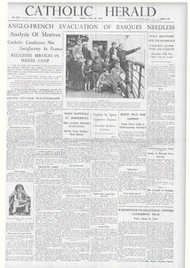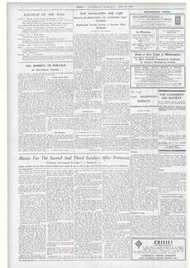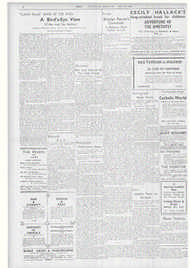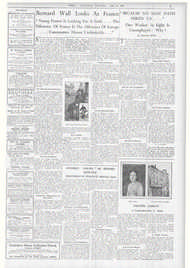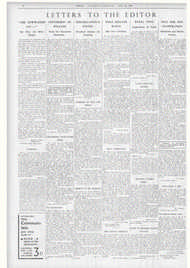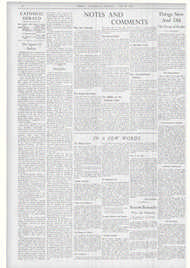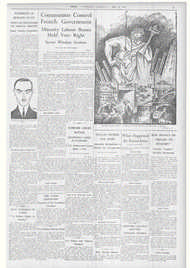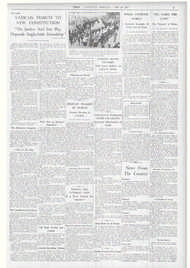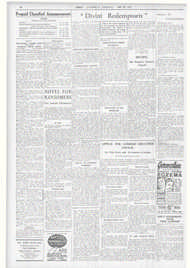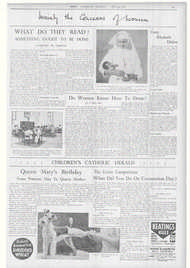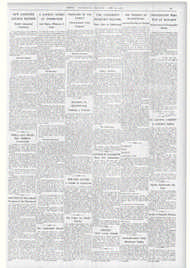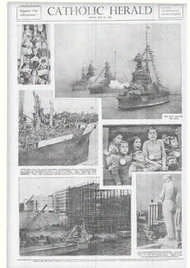Page 2, 28th May 1937
Page 2
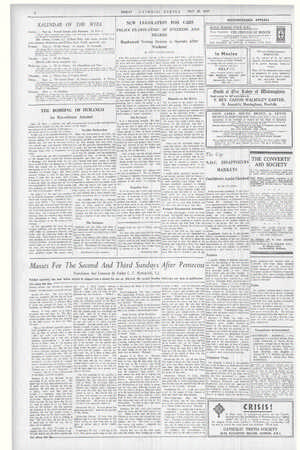
Report an error
Noticed an error on this page?If you've noticed an error in this article please click here to report it.
Tags
Share
Related articles
Facts About Bombed "church"
Nun's Story Of Durango
Fate Of Four Basque Towns Basque Priest's Two Stories
The Day That We Took Franco At His Word
The Present Generation What A Doctor Hears
THE BOMBING OF DURANGO
An Eye-witness Account
[Mrs. M. Beer, a Catholic and wellknown social worker, has sent the following account of the bombing of Durango as she herself saw it on a recent visit to Spain.
At the time of the reported bombing the Catholic Herald accepted the truth of the reports, adding only the statement by an English nun, who was in Durango until four months ago, that religious buildings bombed were at the time of her living in Durango being used as Communist barracks.
Two weeks ago, our own correspondent on the Basque front visited the remains of Durango, and deduced from the evidence available that the destruction of the town was largely due to Marxist selfdestruction, as in the case of Amorebieta, described on another page. Mrs. Beer's account, written in view of that report, makes it clear that the major work of destruction was due to the bombing, but it does not imply the denial that the work was completed by the Reds before evacuation, evidence for which has been seen by our own correspondent.—Editorl
On April 2 of this year five members of an English delegation, including myself, which was visiting Spain, motored to Durango from Bilbao. The delegation had heard that the town had been bombed on the previous day, with terrible loss of life. due to the time when the bombardment had taken place. For it happened in the early morning when the churches were crowded with townspeople at Mass. The delegation was anxious to sec the extent of the damage.
As they approached the town the car stopped suddenly, and the chauffeur hurriedly bade his passengers descend, and hasten into the adjoining fields. off the white road. They hurried out of the car and, standing in the fields, saw aeroplanes circling overhead. Almost immediately the bombs began to fall from the planes over the town, and deafening explosions took place. Some terrified children from a farm near, gathered round, the smaller ones screaming with terror at the loud explosions of the bombs.
Terrible Destruction When the bombardment was over, and the enemy planes had flown away, the delegation decided to proceed to the town, to see what damage had been done by this and the previous bombardment, and to render any aid that might be possible. It was impossible to enter the town by car, so it was left outside, and the delegation proceeded on foot. A terrible scene of destruction met their eyes. The streets were heaped with great masses of fallen masonry, and over these they had to climb with care, catching their feet at every step in tangled strands of electric wires, while broken remains of walls at the sides were falling down into the street from time to time. The town was almost completely destroyed. The churches and a large Augustinian convent were practically wiped out. One big church had some part of the outer walls still standing, but the roof had crashed in, obviously from a direct hit, and nothing but a great heaped mass of fallen stone-work was to be seen inside.
Our chauffeur, who was a Durango man, had separated from the party, in order to make enquiries about his brother, who lived in the town. On rejoining us he told us that his brother had escaped, but that his sister, who was a nun in a convent of the town, had been killed.
The Refugees
Darkness had now fallen, and those of the inhabitants who had sought refuge in the country outside were beginning to come hack to the town.
Many were seeking with lighted candles among the ruins for what had been their homes. It was a terrible and a heart-breaking scene. Throughout the long night that followed, a weary trail of homeless people
dragged along the road to Bilbao, seeking shelter.
For hour after hour, long after the dawn had broken, this long procession of homeless and now destitute men, women and children could he seen, many of them laden with the poor belongings which they had managed to dig out of their ruined homes —a mattress or a few clothes.
blog comments powered by Disqus


